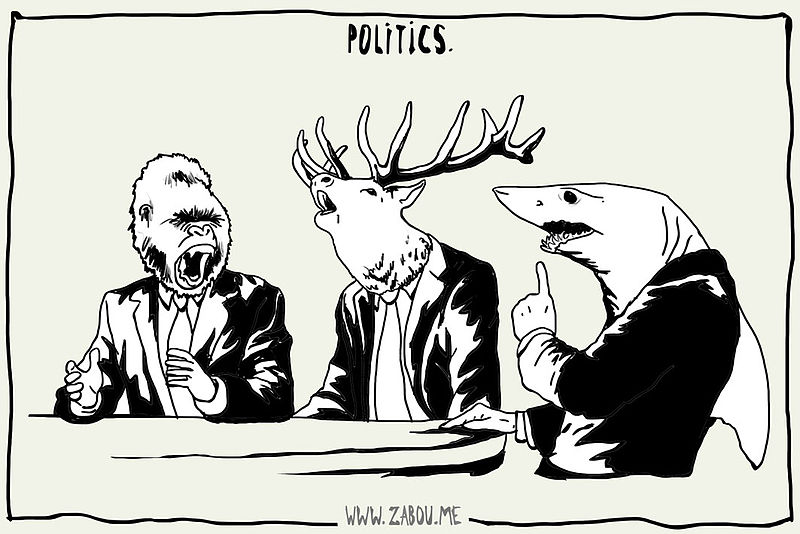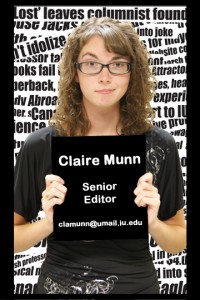
The role of moderators has become a severely debated issue during the 2012 presidential election.
Numerous questions continue to rise after the recent 2012 debates between President Barack Obama and Gov. Mitt Romney, not about their stance on issues, but how well the moderators performed their jobs.
 Many believe moderators should play a minimal part in the debate, with one Fox News contributor claiming they need to blend in more with the furniture.
Many believe moderators should play a minimal part in the debate, with one Fox News contributor claiming they need to blend in more with the furniture.
However, moderators must break this barrier if citizens are to have any hope of being as informed as possible come Election Day.
This year, the responsibility of moderators has evolved into holding these candidates accountable for how they will lead and rightly so.
Despite the terribly meek performance of former PBS news anchor Jim Lehrer — whose knockout question was simply asking about the differences between Obama and Romney — ABC’s Martha Raddatz and CNN’s Candy Crowley definitely raised the bar, refusing to be overrun by the debaters.
While controversy still remains over moderators being silent figures, the fact that these arbiter’s participated enthusiastically shows the significance of asking difficult questions in order to enlighten voters.
Martha Raddatz
The debate between vice presidential candidates Joe Biden and Paul Ryan demonstrated the importance for participants across the board.
Not only did Democrats need to rally back after Obama’s lack of gusto in the first debate, but the moderator had to also prove she was capable of controlling the reins of the discussion — and boy did she.
Raddatz exhibited what had been lacking in a successful moderator: holding candidates responsible for issues they stand on and policies they want to implement.
What Lehrer lacked, Raddatz made up for in exerting herself when candidates were at each other’s throats. When Biden and Ryan tried to speak over her, she commanded attention back to her control as moderator.
For Ryan, Raddatz shot tough questions regarding his tax plan for middle-class citizens and large businesses. She demanded specifics from him, not only on the policy but how the math would work, receiving little clarity in return.
She even went so far as to ask whether or not the proposal was finished, something I think numerous citizens have been wondering for some time now.
However, difficult inquiries were not reserved merely for the Republican Party.
In covering why American troops were pulled from combat during a fighting season, Raddatz voiced concerns to Biden from officers over this decision from the Obama administration.
It is not surprising Raddatz exerted herself as fearless and bold, considering the vast array of her journalistic accomplishments.
In traveling to Iraq 21 times, her past reports include everything from the assassination of Osama Bin Laden to the rescue mission of American pilots who crashed in Libya.
These feats translated strongly into Raddatz’s ability to step up from submissive moderator to fiery deliberator.
Candy Crowley
As with Raddatz, Crowley’s actions during the second presidential candidate debate also exemplified the significance of an active moderator.
When the discussions between Obama and Romney appeared to be turning more into a blood bath, Crowley did not shy away from the fight to maintain order.
In one of the most hostile conversations of the night, Romney used Obama’s lack of declaring the outbreak in Bengazi an act of terror to diminish the president’s capability as commander-in-chief.
Crowley called a cease-fire to the war in the room when she reinforced the fact Obama made a speech in the Rose Garden the day after the attack where he noted the cause as terrorism.
However, she also clarified it took the Obama administration two weeks to determine whether or not this attack was related to a provocative video defaming the prophet Muhammad.
I see what you did there, Crowley.
Since this occurred, arguments have flourished in anger toward Crowley’s side note of the truth, mostly from Republicans.
I, on the other hand, commend her.
Too often, politicians from both spectrums twist facts in order to make themselves seem more appealing to the general voter.
Most citizens are too idle to physically look up candidates’ claims, believing too much in everything they recite.
Crowley served as an on-sight fact checker for this debate, something voters need more of from their moderators, especially in choosing the next president.
As a journalist, I admire the capacity of Raddatz and Crowley to hold these officials accountable for what they say and how they act.
Historically, Crowley is the second woman to moderate a presidential debate since 1992.
Based on her performance, I hope more women journalists are compelled to moderate and behave this way.
By evolving the responsibility of moderators from silent interviewers to committed journalists, these individuals can became an important voice to hear for uninformed citizens.
Needless to say, it will be interesting to watch how this new role will play out for CBS moderator Bob Schieffer in the final debate between the presidential candidates on Oct. 22.
By CLAIRE MUNN
Senior Editor
clamunn@umail.iu.edu
